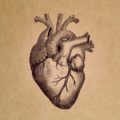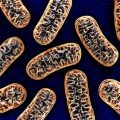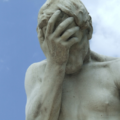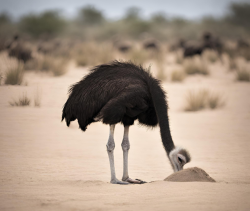By way of introduction, I was educated at St. Bartholomew’s Medical College in London England and graduated with MB BS from London University. After National Service in the RAF as a medical officer, I entered family doctor practice under the National Health Service. I immigrated to Canada by joining the Royal Canadian Air Force on a short service commission. In 1960, I did pediatric residency at Cleveland Clinic in Cleveland, Ohio and was then invited to join the staff in 1962. My experience during the next 20 years showed me that what has come to be called Integrative, or Alternative Complementary, Medicine was an exciting and fulfilling way of practice. It is about this that I would like to talk to you.
First of all, ask yourself why you became a physician, for which you may have incurred a frightening financial debt. Was it because it provides a good income? Was it because of your fascination with science or was it because of your desire to heal the sick? Give it some thought because it can make a difference to your choice of practice. Let me pass on to you my experience because I enjoyed my entire medical career and did not retire until the age of 88.
Let’s look at the history of medicine as it has developed. During the Middle Ages there was absolutely no model to explain health and disease. You remember that Louis Pasteur and others like him discovered that microorganisms attacked us and killed us. Therefore, the first paradigm in medicine was an attempt to kill the microorganism without killing the patient. For many years this was extremely frustrating and many unfortunate patients did not survive the “cure”. Then came the exciting discovery of penicillin and the antibiotic era was born. Microorganisms became “the enemy” and the idea spread to killing the cancer cell, or indeed anything that appeared to attack our health. You know of course that we are coming up against some severe problems with reference to the antibiotics. Apart from bacterial resistance, their toxicity was found to be so great that some were diverted to the treatment of cancer cells.
During my tenure at Cleveland Clinic I was a pediatric oncologist for six years. The children with cancer all died and when I had the opportunity I diverted my interest to the study of inborn errors of metabolism and handed the oncology to a colleague. What was so interesting to me was that the nature of the biochemical lesion for inborn errors had to be discovered at birth, giving rise to the state screening laboratory. If not discovered at birth, nearly all of them would become mentally retarded. In many cases, an appropriate diet could be formulated by the discovery of the biochemical lesion. The damaging effects could be prevented. This is preventive medicine at its best.
One day, I was confronted with a six-year-old boy who had intermittent episodes of self-limited cerebellar ataxia. Each episode had left his mental functions a little bit worse and he had the earliest signs of optic atrophy. He had been tested by every conceivable neurological and neurosurgical method, all of which had been normal. By studying his biochemistry it became apparent that he had intermittent beriberi. His inborn error was due to a defect in the ability of thiamine to bind to pyruvic dehydrogenase as its cofactor. Each episode of cerebellar ataxia was initiated by some form of stress such as a cold, a mild head injury, and on one occasion, an inoculation. The biochemistry was apparently good enough to produce cellular energy, unless some form of physical stress was imposed on him. By giving him large doses of vitamin B1 his episodes of ataxia could be prevented.
To me this was a dramatic experience that completely changed my perspective of medical responsibility. I found by simple trial and error that many of the pediatric problems facing me responded to large increments of a completely non-toxic vitamin ( thiamine) used as a therapeutic agent. I began to be aware that Hans Selye was absolutely correct when he formulated the General Adaptation Syndrome. He recognized that an animal’s ability to meet stress demanded cellular energy to adapt. This was intuitive, because knowledge of energy metabolism in Selye’s day was limited. The collapse of a stressed animal was due to cellular energy deficit and he stated that humans were suffering from “diseases of adaptation” because of their cellular energy deficiency. Skelton, one of his students, had been able to initiate the General Adaptation Syndrome in animals by inducing thiamine deficiency.
I started thinking about our medical approach. Since healing is a natural process within the body itself, shouldn’t we be assisting that in addition to attempts to kill the enemy safely? I came to realize that the use of nutritional elements represented the fuel that our cells use to produce energy. Provided that the DNA blueprint is either perfect or that its imperfections can be improved by epigenetic use of nutrients, the blueprint can be manipulated by understanding the nutrient implications. A study of ideal human nutrition in the process of energy synthesis is absolutely essential to our ability to retain complete health in a hostile environment to which we have to adapt continuously.
I left the Cleveland Clinic and joined with a physician who had opened a practice specializing in the therapeutic use of nutrients. The effects on my patients were dramatic and I can only say that this is the formula that was given to us by Hippocrates who said “let medicine be your food and let food be your medicine”. Now we know a great deal about the essential elements that make up human nutrition. It is as though medicine could be represented as a journey on a rough road. It came to a fork in the road and a signpost pointing one way stated “kill the enemy”. The other signpost was perhaps blank and can now be said to state “assist the defense”. Could it be that it is a new paradigm? It is interesting that Louis Pasteur was said to have stated on his deathbed “I was wrong. It is the body defenses that count”.
Perhaps you, reading this, might think about the truth existing behind these words. Would you be interested in doing your own library research to find out what has been written concerning the art and science behind the much maligned “Alternative Complementary Medicine”? After a lifetime of practicing medicine focused on supporting host defenses with nutrients, I am convinced this is the direction medicine should be taking.
As a new physician, you have yet to experience the frailty of the current medical model. You will; and as you do, consider whether simply ‘killing the enemy’ with antibiotics, tamping down the inflammatory reactions, or overriding any of the body’s many innate mechanisms to deal with illness, is working in your patients. If you come to the conclusion, as I did, that these methods simply do not work for many patients, consider the proposition that we must support host defenses in order to let the body heal.
Yours sincerely,
Derrick Lonsdale, M.D.
We Need Your Help
More people than ever are reading Hormones Matter, a testament to the need for independent voices in health and medicine. We are not funded and accept limited advertising. Unlike many health sites, we don’t force you to purchase a subscription. We believe health information should be open to all. If you read Hormones Matter, like it, please help support it. Contribute now.
Yes, I would like to support Hormones Matter.
Photo by Scott Graham on Unsplash.






